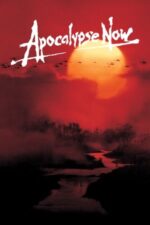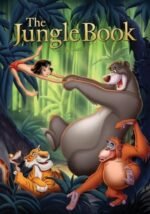Lost & Found: Why We’re Still Drawn to the Jungle on Screen
Isn't it fascinating how often filmmakers choose the jungle as a backdrop? It’s more than just pretty scenery, you know. The jungle – whether it's the Australian Outback in Carnifex, a vibrant animated world like in Karsumm, or the oppressive setting of Hotel Paradise - represents something primal within us, a space where civilization frays and our deepest fears (and sometimes, hopes) are laid bare.
Think about it: historically, jungles have been "the other." They're places unexplored, untamed, full of both incredible beauty and potential danger. Early explorers often portrayed them as hostile environments, teeming with unseen threats – a narrative that’s bled into cinema for decades. You see echoes of this in films like White Cannibal Queen, where the jungle isn’t just a location but an active antagonist, mirroring the protagonist's internal turmoil and grief. It’s not simply about getting lost; it’s about confronting something within yourself reflected back by nature’s indifference.
But the jungle also holds a powerful allure. It represents abundance, life bursting forth in chaotic beauty. Karsumm, with its stunning visuals, really captures that sense of wonder and interconnectedness – a reminder of what we stand to lose if we don't prioritize conservation. It's a stark contrast to films like Cannibal Terror, where the jungle becomes a terrifying trap, highlighting humanity’s capacity for brutality even within such a vibrant ecosystem.
What I find particularly compelling is how the jungle setting allows filmmakers to explore themes of power and oppression in unique ways. Escape from Hell and Hotel Paradise, both set in brutal prison camps swallowed by dense foliage, use that claustrophobia to amplify the psychological torment of their characters. The jungle isn’t just a backdrop; it's an extension of the system keeping them captive – inescapable, relentless, and seemingly indifferent to their suffering. It’s a visual metaphor for systemic injustice.
I remember watching Fitzcarraldo as a teenager (a bit different from these examples, I know!), and being completely mesmerized by Werner Herzog's depiction of the Amazonian jungle. It wasn’t just about the physical challenge of moving a ship over a mountain; it was about obsession, ambition, and the destructive power of trying to conquer nature.
Ultimately, the enduring appeal of the jungle in film lies in its ability to hold so many meanings at once: danger and beauty, freedom and imprisonment, civilization and savagery. It’s a canvas onto which we project our anxieties, our hopes, and our deepest fears – and that's why it continues to fascinate us on screen.
What films featuring wild landscapes have really stuck with you? I'd love to hear about them!






































